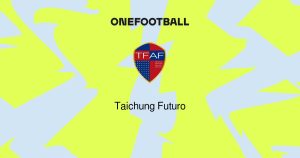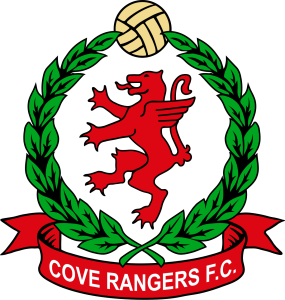Ronaldinho, a name that resonates with football enthusiasts around the globe, is not just a player; he is a phenomenon. Known for his dazzling skills, infectious smile, and unrivaled creativity on the pitch, Ronaldinho has left an indelible mark on the world of sports. His journey from the streets of Porto Alegre to becoming a global icon transcends the boundaries of football, inspiring millions while redefining what it means to play the beautiful game.
The Early Life and Background of Ronaldinho
Understanding the roots of Ronaldinho helps us appreciate his unique style and charisma. Born as Ronaldo de Assis Moreira in Porto Alegre, Brazil, on March 21, 1980, Ronaldinho was surrounded by football from a young age. Growing up in a modest family, his father was a former professional footballer who played for the local club Grêmio, while his mother worked as a salesperson. It was his father’s influence that shaped Ronaldinho’s early love for the nhà cái 88clb.
Influences and Family
From an early age, Ronaldinho showed immense talent. He often played football with his older brother Roberto, who would become a significant figure in his career. The bond between the brothers was instrumental in shaping Ronaldinho’s playing style. Roberto introduced him to street football, where improvisation and flair were essential, qualities that became hallmarks of Ronaldinho’s game.
The encouragement from his family laid the foundation for his future success. His father passed away when Ronaldinho was only eight years old, but his memory lived on through the dreams and aspirations he had instilled in his son. Ronaldinho often credits his upbringing for his cheerful demeanor and passion for football, emphasizing how the love of the game was nurtured within him.
Street Football Culture
Brazil has a rich culture of street football, and Ronaldinho was deeply influenced by this environment. Playing on the streets of Porto Alegre, he learned to develop an array of skills that set him apart from his peers. In these informal settings, players could express their individuality without the constraints of formal coaching or regulations. This freedom allowed Ronaldinho to experiment with tricks, feints, and dribbles that would later astonish audiences worldwide.
Street football is about joy, creativity, and community. These elements translated into Ronaldinho’s playing style, characterized by his playful attitude and showmanship. His ability to engage fans and entertain spectators made him not just a football player but a performer who brought joy to the game.
Transition to Professional Football
Ronaldinho’s journey to professional football began when he joined Grêmio’s youth academy at the age of seven. His prodigious talent quickly earned him promotions through the ranks, and by the age of 20, he made his debut for the senior team.
During his time at Grêmio, Ronaldinho helped the club win the Copa do Brasil in 1997, showcasing his potential and solidifying his reputation as one of Brazil’s most promising young talents. His performances drew the attention of scouts from Europe, leading to a pivotal move to the continent that would change his life forever.
The Rise to Stardom
Moving to Europe marked a significant turning point in Ronaldinho‘s career. He signed with Paris Saint-Germain in 2001, stepping into a grand stage where he would have to prove himself against some of the best players in the world. The transition was challenging, but Ronaldinho embraced it wholeheartedly.
Success at Paris Saint-Germain
At PSG, Ronaldinho experienced rapid development as both a player and a star. He quickly established himself as the team’s standout performer, captivating fans with his exceptional skills and game intelligence. His creativity led to numerous assists and goals, elevating the club’s stature in French football.
One notable aspect of Ronaldinho’s style was his ability to make complex moves look effortless. His signature tricks, such as the elastico and no-look passes, made defenders appear foolish while entertaining fans. This electrifying style eventually contributed to winning the Ligue 1 title in the 2002-03 season.
Ronaldinho’s success at PSG also changed the perception of the club in European football. Once considered a mid-tier team, PSG garnered international attention due to Ronaldinho’s presence, and he became a vital part of their identity. His flamboyant play attracted sponsorship deals and increased attendance, signifying the impact a single player can have on a club’s fortunes.
The Move to FC Barcelona
In 2003, Ronaldinho made a monumental decision by transferring to FC Barcelona. This move would catapult him into superstardom and redefine his career. Under the management of Frank Rijkaard, Ronaldinho flourished in an environment that encouraged creativity and attacking football.
At Barça, the partnership he formed with other stars like Samuel Eto’o and Lionel Messi became legendary. Their chemistry on the field allowed for fluid attacking movements and stunning displays of football artistry. Ronaldinho’s vision and skill complemented Messi’s raw talent, paving the way for the latter’s rise to prominence.
The 2004-05 season was particularly remarkable for Ronaldinho. He won the FIFA World Player of the Year award, solidifying his status as one of the greatest players in the sport. His contributions helped Barça secure La Liga titles and the UEFA Champions League trophy, culminating in a historic period for the club.
Legacy at FC Barcelona
Ronaldinho’s legacy at FC Barcelona goes beyond statistics and trophies. He redefined the club’s philosophy, prioritizing joy and entertainment in football. His arrival transformed Camp Nou into a place of magic, filled with awe-inspiring moments that fans will cherish forever.
His charismatic personality and humble spirit endeared him to supporters, creating a deep connection that transcended language barriers. Ronaldinho’s celebrations, often filled with laughter and spontaneity, mirrored the emotions of the audience, ensuring that everyone felt part of the experience.
Moreover, his impact on the younger generation of footballers cannot be overstated. Players like Messi, Neymar, and countless others cite Ronaldinho as a source of inspiration, watching his highlights and attempting to emulate his unique playing style. His influence continues to resonate, shaping the next generation of talent.






I don’t think the title of your article matches the content lol. Just kidding, mainly because I had some doubts after reading the article.